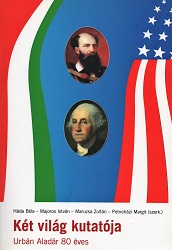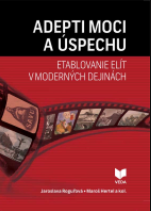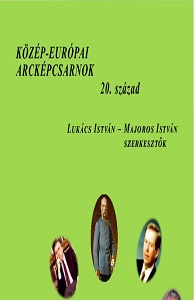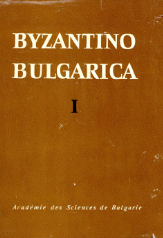
We kindly inform you that, as long as the subject affiliation of our 300.000+ articles is in progress, you might get unsufficient or no results on your third level or second level search. In this case, please broaden your search criteria.








Hospodárske vzťahy Slovenska s nacistickým Nemeckom, resp. s Nemeckou ríšou, v rokoch 1939 – 1945 sú už niekoľko desaťročí objektom výskumu slovenskej a čiastočne aj českej a nemeckej historiografie.2 Slovenskí historici im venovali osobitnú pozornosť v 50. a 60. rokoch. V období normalizácie však výskum stagnoval. Nová generácia historikov, nastupujúca v 90. rokoch, si opäť začala uvedomovať ich význam pre formovanie celkového nemecko-slovenského vzťahu. Z viacerých otázok sledovanej témy už bola do značnej miery spracovaná expanzia nemeckého kapitálu na Slovensku, problematika poradcov – beráterov, kľúčové hospodárske zmluvy a niektoré ďalšie otáz ky. Nasledujúca štúdia hodnotí vývoj medzivládnych rokovaní s hlavným dôrazom na doteraz nespracovaný obsah rokovaní slovensko-nemeckých vládnych výborov.
More...
Leo Valiani was a politician, historian and journalist born in the town of Fiume in 1909. He was first sentenced to prison as an anti-fascist in 1928. He befriended Arthur Koestler while both men were detained in the Le Vernet camp in France in 1939. In 1943, the Allies sent Valiani behind enemy lines, and he became a leading member of the Comitato di Liberazione Nazionale Alta Italia, one of the leading groups of the victorious uprising of Milan in April 1945. In 1946, Valiani was elected to the Italian Constituent Assembly. After the dissolution of his party, the Partito d’Azione, Valiani chose to work as an economist, an analyst for a leading bank. He maintained his ideals of democracy, and published the history of the Italian resistance movement, as well as essays on the socialist movement, the Spanish Civil War, etc. He was also a scholar of Hungarian history. He was one of the promoters of the international campaign for the liberation of Hungarian intellectuals arrested after the defeat of the revolution of 1956. In 1966, he published his most important work: The End of Austria–Hungary. He became senator for life in 1980, and continued his work, publishing essays and leading articles right until his death in 1999.
More...
Charles IV. as a ruler of Austro-Hungarian Empire and as a king of Hungary could not fullfill expectations concerning his reign. He could not bring the peace and he was not able to make the real and necessary poli-tical and social reforms. He tried, but he was not succesfull. His memory however is alive because the Catholic Church beatified him. His memory absolutly connected with it. In the eyes of Catholic Church he is a good man. Otherwise his memory practically does not exist.
More...
For Hungary, state and nation, among those non–Hungarians who ex-erted the greatest influence on its history of the 20th century, Edward Benes ranks among the most influential of the Central European politi-cians. The important stages of his career often intersected the path of Hungary’s history. In this essay we survey the career of Edward Beneš particularly his foreign policy from his birth to his death.
More...
Dr. Milan Hodža (1878–1944) was the first prime minister of Czechoslovakia with Slovak origin (1935–1938), but he was active in the public life from the end of 19th century. Before the first world war he was the member of Hungarian parliament and the unofficial advisor of the Franz Ferdinand (Belveder Circle). Hodža this time established the Slovak agrarian democratic political movement and after 1919 he was the deputy president of the Czechoslovak Agrarian Party, which was the most important civic party in the interwar period. Hodža always supported the idea of the cooperation of the Central European countries. Especially important was this idea for him during his emigration under second world war. Hodža did not agree with the pro-Soviet orientation of emigrant president Edvard Beneš and they had many conflicts. Beneš was the winner of this struggle and Hodža emigrated to USA. There he wrote the main publication of his life – the concept of the fedaration in the Central Europe.
More...
Central Europe as a region played an important role in Helmut Kohl's carreer and politics. At the beginnings of his chancellorship, from 1982 he pursued Ostpolitik, a policy of detent between East and West, wich was initiated by his predecessors, Willy Brandt and Helmut Schmidt.
More...
Victor Emmanuel III reigned for a long time, for 46 years (1900–1946), all the same the international historical litterature hardly deals with him, his name is only mentioned in the publications. Even the Italian his-torians have not written much about him. In the first trimester of the 20th century he was praised by the majority of the publications. But from the last third of the thirties the critical tone intensified with him because he legitimized Mussolini's increasingly aggressive foreign policy. And though he dismissed Mussolini in 1943, but the critical tone on him did not chan-ge. After 1945 he just saw the events. The referendum in 1946 decided the fate of the monarchy and the king.
More...
Francois Fejtő as a journalist and intellectuel, expert of the communist World, was a particularly succesfull mediator of East and Central Europe in France where he emigrated in 1938 from Hungary to.
More...
The cultural aspect of the Cold War served, supplemented and even overwrote the political maneuvers in many areas. It created such oppor-tunities for the West which made a significant contribution to map the communist countries and make the most effective infiltration possible; of course, this was true in the contrary too, since it was an excellent intelli-gence field also for the East. In this essay, I am dealing only with a smaller but inevitably important segment of this area through the example of the School of Slavonic and East European Studies (SSEES) and Professor George Frederick Cushing (1923-1996). In this case, education did not conceal mutual, general knowledge, since such contacts are related to the history of intelligence in many ways.
More...
The thinking of the generation of the Austrian politicia born in the last dbecades of the Austro-Hungarian Monarchy was determined by the unique set of identities and diversity that gave a special dinamics to na tion consciousness awakening in the First Republic.
More...
A Hungarian fate, a life path, in which dwell almost all the Hungarian polit-ical, social and public impasses of the larger part of the 20th century. Dezső Sulyok’s (1897–1965) life well represents the path of the genera-tion, which had to fight through both of the world wars, experiencing the defeat and dissection of its homeland, along with the humiliation of its na-tion. Sulyok had to fight for democracy, freedom, Christian ethics, social justice in not only one, but two historical eras, only to find himself fail in both of these struggles. Not because of the lack of his abilities or respon-siveness of the Hungarian nation, but primarily because of the interna-tional circumstances. In the middle of the century, between the crushing wills of National socialism and Bolshevik communism, under the pressure of 2 superpowers – the Third (German) Reich’s and the Soviet Union – the struggle for national independence and freedom failed in Hungary. Dezső Sulyok still in time – meaning early – suggested the necessity of Hungary’s neutrality, and the idea of a United States of Europe, which would have been based on the cooperation of nations, and he could even imagine the creation of a World state. At the same time Sulyok was strongly committed to the cooperation of central-European nations, but not on the false grounds of Versailles. In the end, fate had a long emigra-tion in mind for Sulyok, just like for many other democrats and patriots in Central-Europe. Even though he could never return to his – sovietised – homeland, his idea of national democracy did not fade away.
More...
